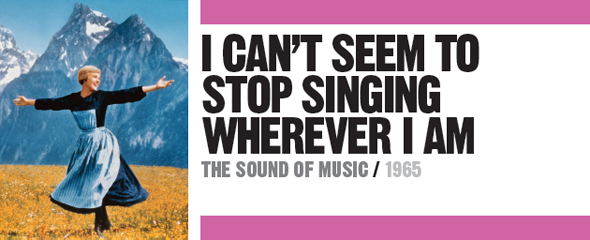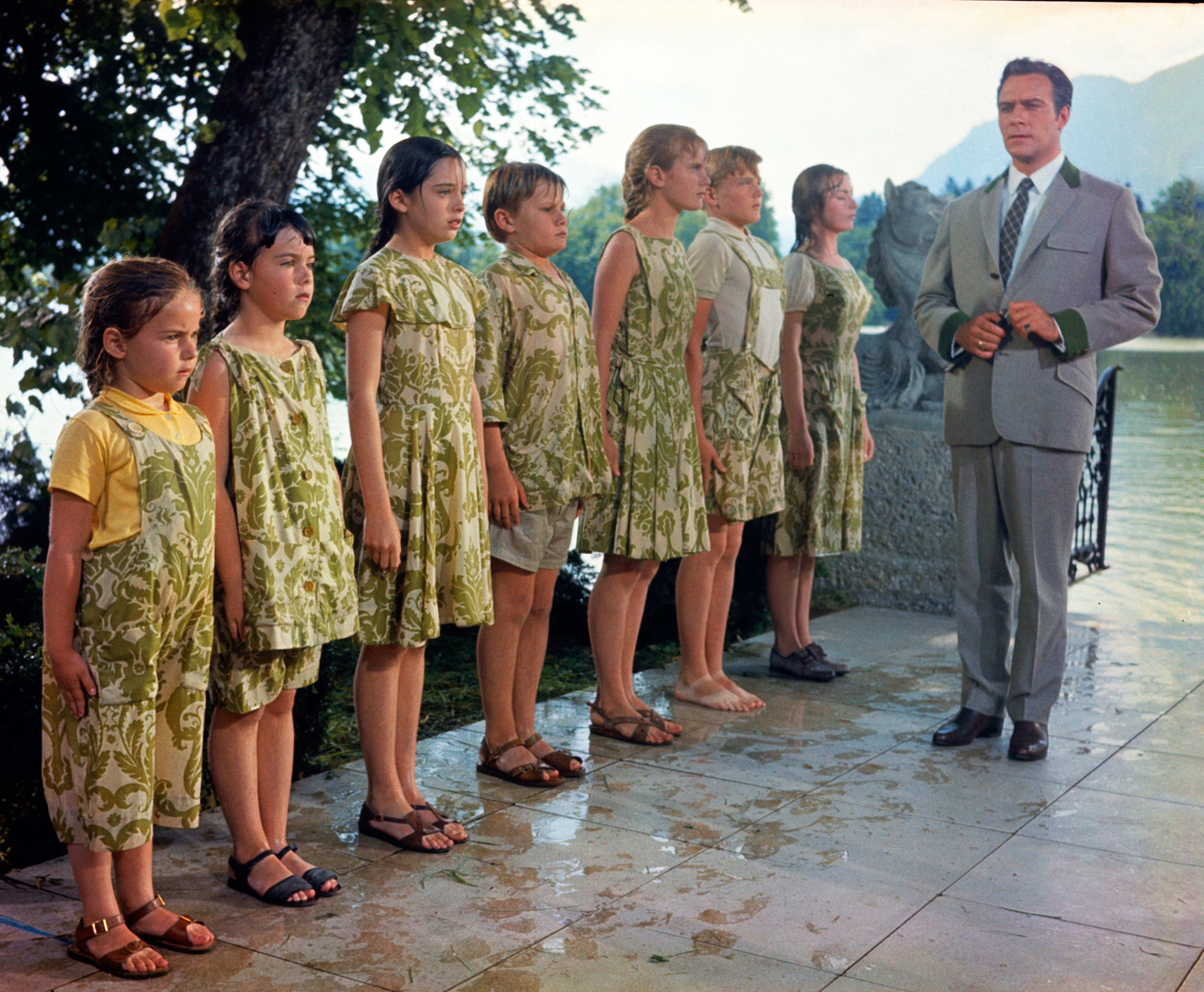The Movie Book (Big Ideas Simply Explained) (2016)


IN CONTEXT
GENRE
Musical
DIRECTOR
Robert Wise
WRITERS
Ernest Lehman (screenplay); Maria von Trapp (book); George Hurdalek, Howard Lindsay, Russel Crouse (stage musical)
STARS
Julie Andrews, Christopher Plummer, Eleanor Parker
BEFORE
1956 Ruth Leuwerik stars in The Trapp Family, a German adaptation of von Trapp’s book.
1959 The Sound of Music opens on Broadway, composed by Richard Rodgers with lyrics by Oscar Hammerstein II.
AFTER
1972 The musical Cabaret is set in Berlin at the time of the Nazis’ rise to power.
Today, screenings of The Sound of Music are often billed as sing-alongs, at which audiences who know every lyric enjoy a sense of shared nostalgia for the songs. Yet behind the fun there is a significant movie.
The story of a misfit postulant, Maria (Julie Andrews), who leaves her abbey to become governess to the seven unruly children of a stern widower, Captain Georg von Trapp (Christopher Plummer), unfolds in the bucolic, chocolate-box setting of the Austrian Alps. Maria’s good humor and musical inventiveness win over the children and, gradually, the captain’s heart. Set in 1938, and based on a true story, the movie continues to resonate, perhaps because it represents values that were almost extinguished in one of Europe’s darkest periods.

Captain von Trapp is bemused to find his seven children dripping wet and dressed in loose-fitting clothes made by their governess, Maria, out of the floral drapery in her room.
Vulnerable innocence
The movie’s first half focuses on Maria’s acceptance into the von Trapp family and the dilemma she faces when the captain begins to fall in love with her, despite his engagement to an aristocratic socialite, Baroness Schraeder (Eleanor Parker). Distraught at the situation she has created, Maria flees back to the abbey, but the abbess encourages her to return to her new home. To the children’s delight, the captain marries her, and the movie might have ended happily there. Instead, however, it continues in a markedly different tone, its focus shifting from the family’s domestic situation to its place in the wider world. As the Nazi Anschluss of Austria threatens to sweep away all they cherish, their fate becomes linked with that of the country.
The danger is most poignantly represented by Rolfe (Daniel Truhitte), a local boy who is in love with von Trapp’s eldest daughter Liesl (Charmian Carr). Rolfe’s arrival one day in a Nazi uniform shocks both the family and the audience, and serves to demonstrate the way in which innocent youth can be corrupted and turned to malign ends. The captain tells him, “They don’t own you,” revealing his fear of what is happening to the country and its people, and reminding Rolfe that he has free will. But Rolfe nevertheless betrays the family.
“When the Lord closes a door, somewhere He opens a window.”
Maria / The Sound of Music
Songs of comfort
Much of the singing in The Sound of Music is about finding joy in the ordinary and the commonplace, but in several instances the songs are used to overcome fear or to ward off danger. My Favorite Things is sung when Maria tries to calm the children during a violent storm, and in the final set piece, when the family performs on stage at a festival in Salzburg, they are singing to buy time as danger closes in around them. While Nazi officers watch from the front row, there are soldiers waiting in the wings to prevent the family’s escape and to force Captain von Trapp into military service the moment the show is over.
The movie’s overwhelming optimism does not simply derive from the hills being “alive with the sound of music” (in the words of the titular song), but from its message that honesty and goodness are defenses against evil. When Captain von Trapp rouses the festival audience to sing Edelweiss, a tender song about the Alpine flower that symbolizes Austria, he is affirming his loyalty to a country that has been annexed by a ruthless foreign power, and standing up in defense of everything that he sees as decent and good.
In a sense, then, Maria and the captain are protecting not only their children, but a whole way of life, and their final escape over the mountains carries the hope that this way of life will survive.
ROBERT WISE Director

Born in 1914 in Winchester, IN, Robert Wise was 19 when he got a job as a sound and music editor at RKO radio pictures, and he eventually became Orson Welles’s editor on movies such as Citizen Kane. Wise’s first directing job was on The Curse of the Cat People (1944), and he went on to direct many notable B movies such as The Day the Earth Stood Still (1951) and The Haunting(1963). Later in life he worked on musicals, most famously making West Side Story and The Sound of Music. Wise died at 91 in 2005.
Key movies
1945 The Body Snatcher
1951 The Day the Earth Stood Still
1961 West Side Story
1965 The Sound of Music
What else to watch: Singin’ in the Rain (1952) ✵ From Here to Eternity (1953) ✵ Gigi (1958) ✵ West Side Story (1961) ✵ The Haunting (1963) ✵ Mary Poppins (1964) ✵ Cabaret (1972) ✵ Les Misérables (2012)